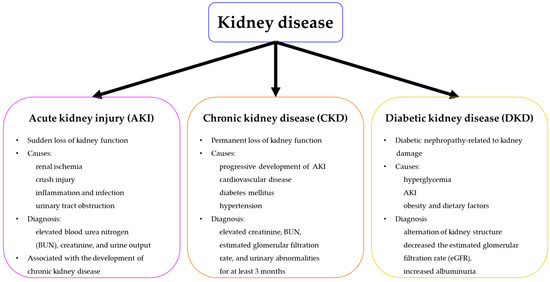The diagnosis of kidney disease has largely focused on glomerular filtration while assessment of kidney tubular health has notably been absent. Many people do not experience.
Acute kidney failure is often short-lived but requires treatment until kidney function returns.

Acute on chronic renal failure. When there is abrupt loss of kidney functioning it is called acute renal failure. Acute renal failure is abrupt deterioration in renal function which is usually but not invariably reversible over a period of days or weeks and usually accompanied by a reduction in urine volume. Biomarkers of Acute and Chronic Kidney Disease The current unidimensional paradigm of kidney disease detection is incompatible with the complexity and heterogeneity of renal pathology.
Chronic kidney disease is diagnosed as a result of screening of people known to be at risk of kidney problems such as those with high blood pressure or diabetes and those with a blood relative with. It may develop rapidly over a few hours. Chronic kidney disease develops over time and is related to a number of risk factors including diabetes and high blood pressure.
Renal failure develops when there is a reduction in the kidneys ability to sufficiently filter waste products from the blood. Chronic renal failure is the clinical syndrome of the metabolic and systemic consequences of a gradual substantial and irreversible reduction in the excretory and homeostatic functions of the kidneys. Acute kidney injury chronic kidney disease 1.
CHRONIC RENAL FAILURE Introduction- Chronic kidney disease CKD also known as chronic renal disease CRD is a progressive loss in renal function over a period of months or years. Acute kidney failure is when your kidneys stop working suddenly. CKD Evaluation and Management.
Autosomal Dominant Polycystic Kidney Disease ADPKD Blood Pressure in CKD. It can happen over just a few hours or days. Nurs 2255 clinical reasoning.
The nurse reviewing the clients daily laboratory test results notices the following values. There is a great chance that the ARF is reversed while there is no hope for CRF reversing. If chronic kidney disease is detected early medication and lifestyle changes can increase the life of your kidneys.
The glomerular filtration rate falls rapidly together with an increase in the urea nitrogen and serum creatinine levels. Key Differences between Acute Renal Failure and Chronic Renal Failure. It can also develop.
In acute renal failure kidney function is lost rapidly and can occur from a variety of insults to the body. It is caused by a wide variety of diseases and medications with acute or chronic effects on renal vasculature the tubules or the glomerulus. Its common in people who are already in the hospital.
Patients with chronic kidney disease CKD as evidenced by a low eGFR or presence of proteinuria are at higher risk for developing AKI. Acute kidney failure is also called acute kidney injury or acute renal failure. Acute kidney injury AKI is a common disorder with a population incidence of about 2000 per million population pmp.
Renal failure may occur as an acute and rapidly progressing process or may present as a chronic form in which there is a progressive loss of renal function over a number of years. Kidney failure may occur from an acute situation that injures the kidneys or from chronic diseases that gradually cause the kidneys to stop functioning. Renal failure Renal failure is defined as a significant loss of renal function in both kidneys to the point where less than 10 to 20 of normal GFR remains.
The impairment of renal function occurs sudden or within a short period of time that may be consist of some days to weeks be the ARF. Acute renal failure is when a persons kidneys are not working as well as they once did. The CRF can be diagnosed if more than 3 months are passed.
The client is a 62-year-old admitted 2 days ago with traumatic injuries and hypovolemic shock from a car crash. Acute Kidney Injury AKI Anemia in CKD. Doctors sometimes call it acute renal failure.
This usually happens very suddenly over several hours or up to 2 days. If it is not treated it can have complications and lead to chronic renal failure. KDIGO Guidelines KDIGO guidelines are created reviewed published and implemented following a rigorous scientific process.
Acute kidney failure isnt always.

